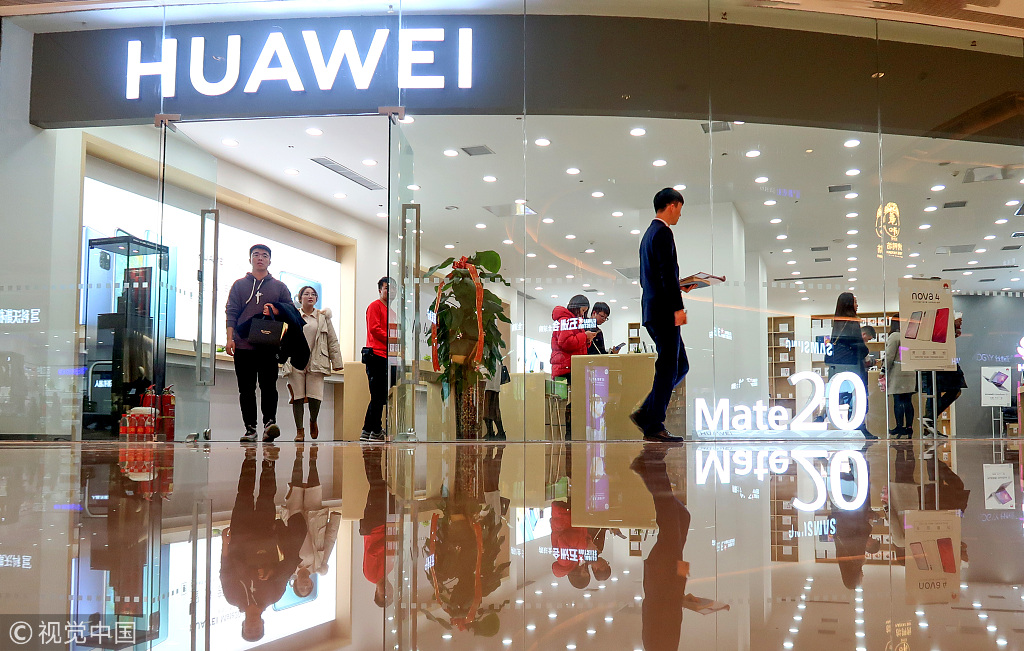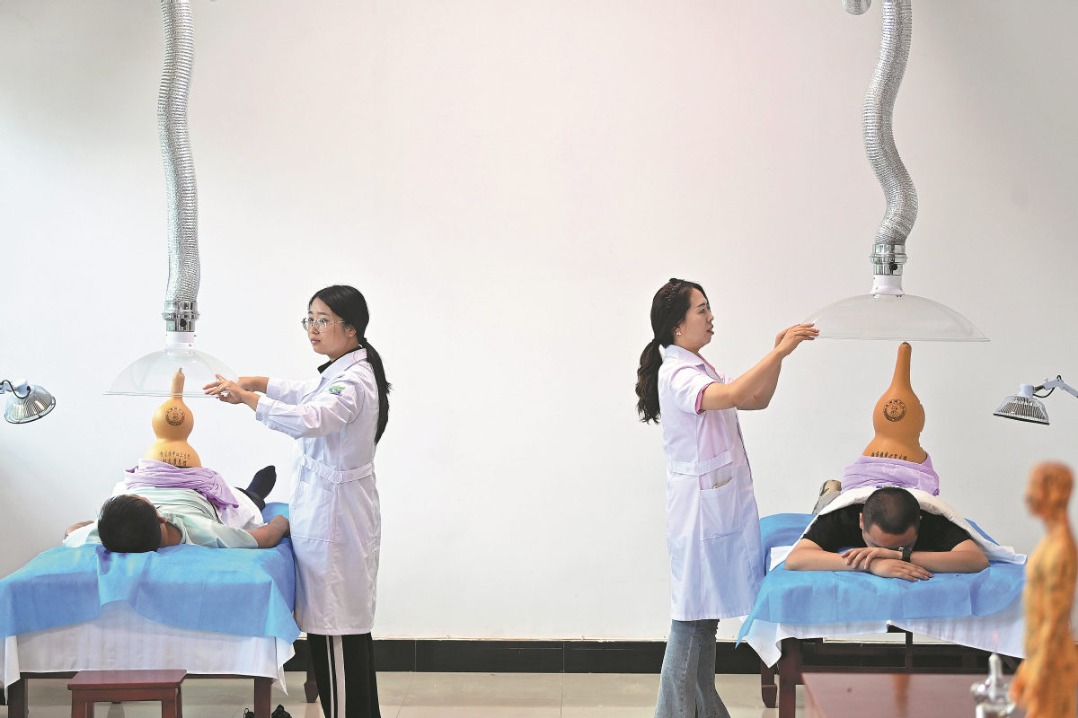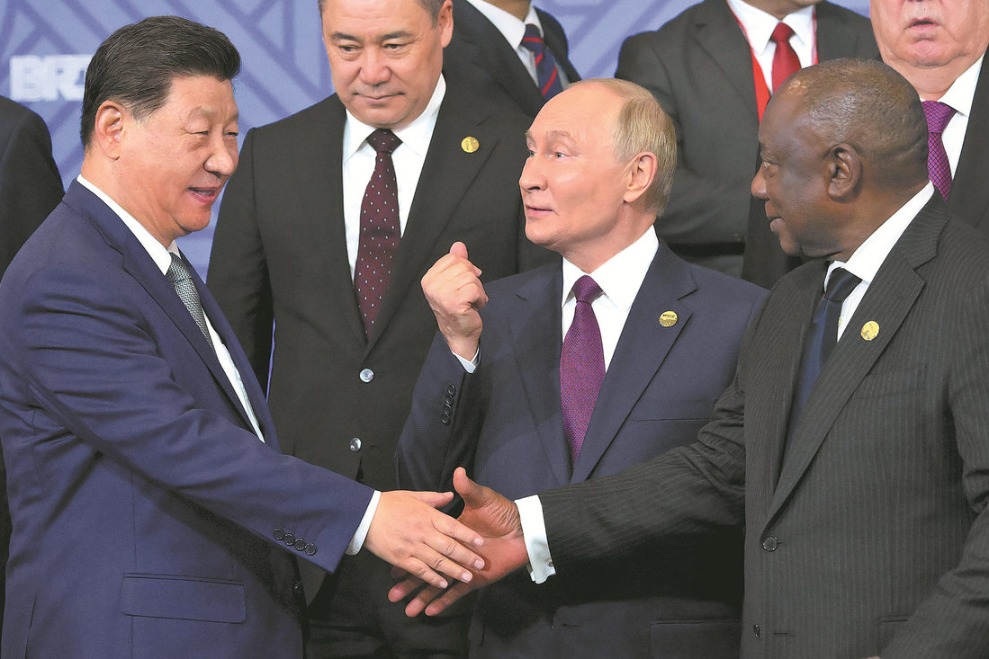Huawei's rotating chairman Ken Hu speaks to global media
chinadaily.com.cn | Updated: 2018-12-26 11:37

Clay Chandler, Fortune: Just a follow-up on Dan’s question. You’ve shown us the wonderful testing and evaluation center here and described how the processes are working for countries like UK. I wonder if in the United States and Australia for example, you see any value in making similar investments to create centers that can show people how these technologies can be verified and demonstrate your security record in a concrete way in particular markets that’s been especially problematic.
Ken: I would say, why not? Because if we look at the cyber security center we built in the UK, it’s for the UK. And we have a similar center in Canada to address their concerns. We have this new security center in Germany to serve the German market. As I mentioned earlier, we should have communications with government to fully understand their concerns. And also take agreed actions to address and mitigate those concerns.
Once people raise concerns about security, bear in mind they want to address and resolve the concerns. I would say definitely we will be able to find the right solution.
But for security concerns raised as an excuse to block good companies from market participation, without hoping to truly address these concerns, I would say the results would be very different. Take 5G, for example. If security concerns are raised as an excuse to block market competition, the result would be slower adoption of the new technology, much higher cost of network deployment, and consumers not being able to enjoy good technology, good services in a timely way. And yet, they will still have to pay more for those services.
And from a security point of view, this approach would not help to truly address and resolve the concerns around cybersecurity, given the fact that the ICT value chain is global in nature. If there are concerns saying Huawei's equipment is made in China, then if you look at all the companies along the value chain of ICT, you can hardly find even one company where they say none of my products or components are produced in China.
We would urge all players to get rid of these ideological or geopolitical considerations, and return the discussion to security and to technology. I also call for all players to come together to identify the real risks, and to find the right solutions.
Sijia Jiang, Reuters: I want to ask for more details on the two-billion dollar security overhaul. Can you please give some more information on how exactly you arrive at this number? How you will spend the money in which market, and why now? Is it in response to the July report from CSEC that you decided to address some of the UK concerns? But some of the issues had actually been raised as early as 2015. So why does this take so long for you to take any action, and why now?
Ken: The two-billion dollar five-year program on software engineering improvement is part of Huawei's IPD transformation. This year, the company decided to start what we call IPD 2.0 program. IPD refers to "integrated product development." This software engineering improvement program is part of that overall effort.
More than 10 years ago, we started this transformation process by introducing integrated product development for technology and innovation. That's what we call IPD 1.0. And through our efforts over the last 10+ years, and with the support of these restructured processes, we are able to deliver reliable, high quality and innovative products.
Then we started IPD 2.0 with a renewed understanding about future technology evolution, future networking environments, and what customers and society expect from technology at large. From a technical point of view, as we say it, the future technical landscape will become more complicated. From a network point of view, the future network environment will be more open, connecting not just people but also things. From a social point of view, digital technology will become increasingly important and an integral part of people's lives, having implications for everyone in the way they work and live. Naturally, as a result of this, what people expect from technology is not just technical leadership and quality. Security will become a basic demand and requirement.
We foresee in the not long future down the road, the trustworthiness and security of technology will become the most fundamental and basic requirement for any given technology.
That's how we envision the future, then we will start from there and work backwards. The trustworthiness of a technology or a product can not entirely rely on testing efforts at the very end of development processes; rather, it has to start from the early design phase. As people often say, a good product is not made through testing but through design and development.
Similarly, we believe trustworthy and secure products of the future will firstly rely on design. As a part of the IPD 2.0 transformation, the trustworthiness and security of the products is a very important objective that we will be working on. At the same time, we think software will be more and more important in future products. Therefore, software engineering will play a more important role to ensure the trustworthiness and security of future products.
You are right when you talked about the July report from the Oversight Board of the UK. While they acknowledged the track records of Huawei's products from a security point of view, they also reminded us that Huawei needs to improve its software engineering capabilities and practices.
This is help from the UK government and we feel very appreciative about it. Therefore, as part of the overall IPD 2.0 transformation, we include software engineering capabilities as a very important component. In terms of how we arrived at this number [$2 billion], it is based on our technology mix and also based on our own cost estimations.
In the recent several months, we have been looking at this software engineering improvement as part of our overall IPD 2.0 transformation and we are working on our implementation plans for the future. We are quite confident about this transformation.
Huawei is a big company. It's not that easy for us to make a decision, especially a big decision. But whenever we've made a decision, Huawei has never failed. We are committed to see to it that we deliver the results on the things that we have decided to do. More importantly, we think this transformation and also all these improvement efforts are important for us to remain confident for our longer-term future and also to maintain the confidence of governments, customers, and partners around the world on Huawei.
























